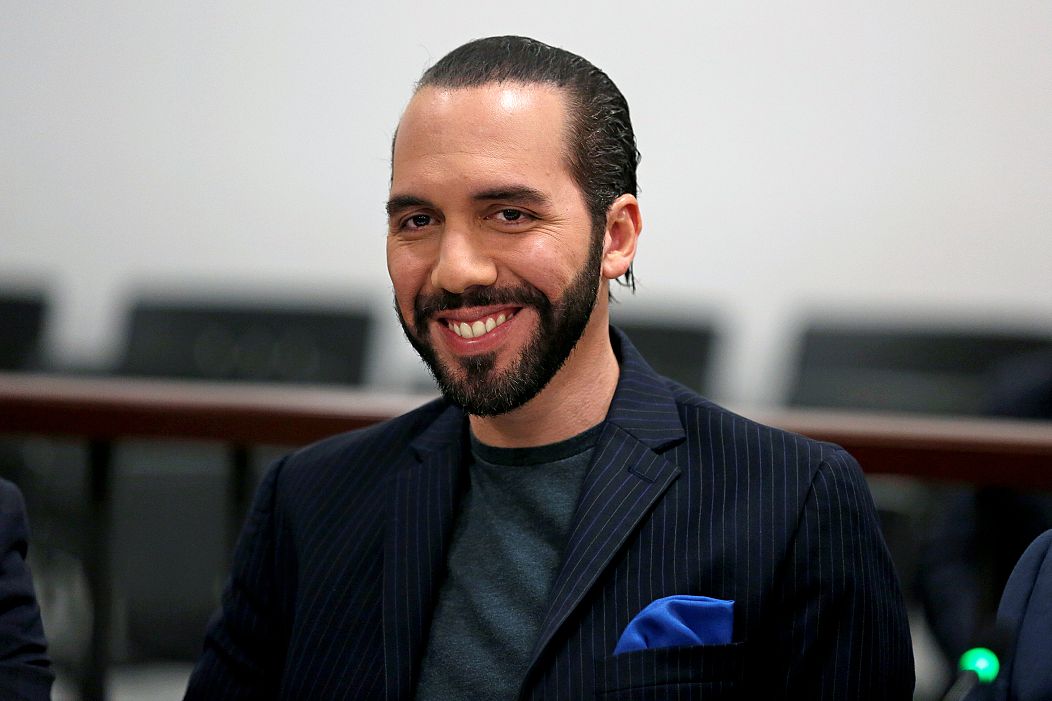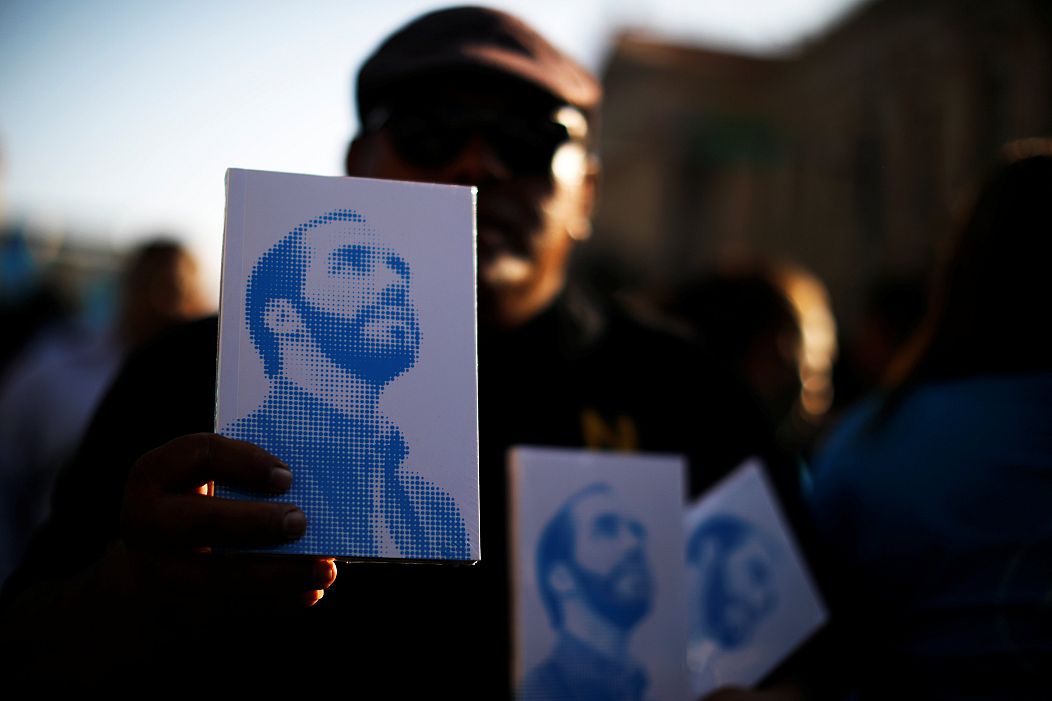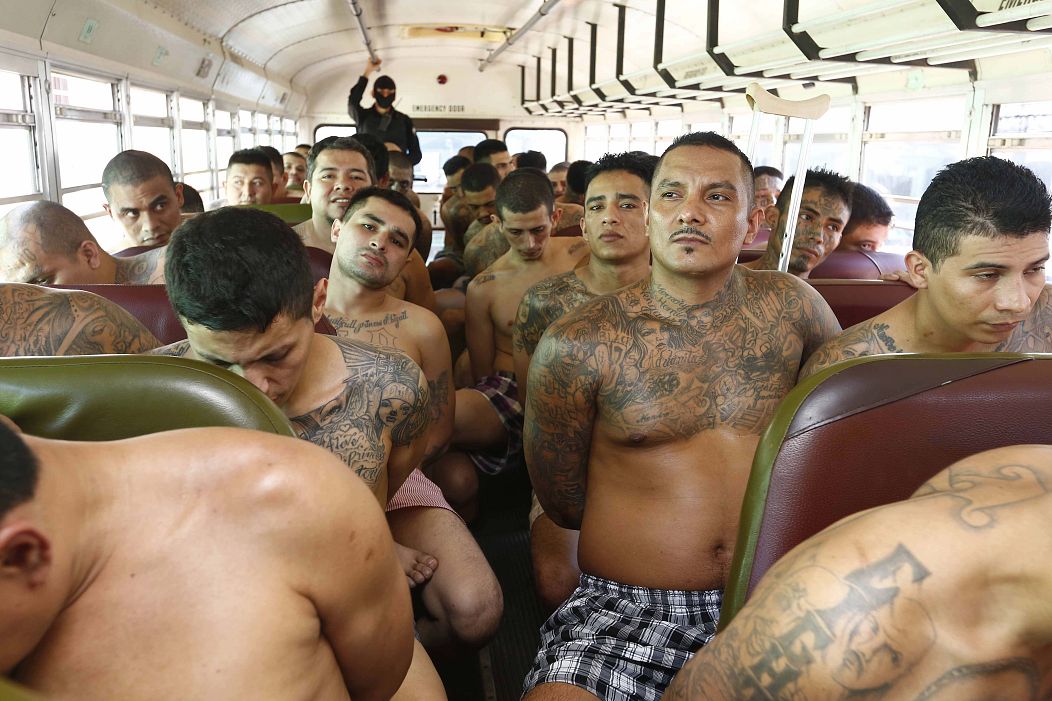It's the first time since the 1992 peace accords that dominating political parties could lose the elections against a young candidate with no political ideology.
For the first since the 1992 Peace Accords, the leadership of the Salvadorean government could slip out of the hands of the dominating parties with a young and unknown candidate the favourite to win.
 ADVERTISEMENT
ADVERTISEMENT
 ADVERTISEMENT
ADVERTISEMENT
The Guardian dubbed Nayib Bukele, a former young mayor of capital city San Salvador, the “millennial mayor” because of his approach to fighting the city’s violence with an avid use of social media and an unprecedented gentrification plan to kick out all gangs from the city centre.
In a nation bowed to the mercy of the street gangs' bloody laws (known as maras in Spanish), Bukele has promised to bring back cultural life with projects aimed at distancing youths from a criminal life.
On February 3, the poll’s favourite could inch closer to the presidency if he wins the first round of elections.
But who is Nayib Bukele, the ace of the “millennial strategy”?
The 37-year-old of Palestinian origin would become the youngest president in El Salvador’s recent history. Bukele is running for the right-wing party, Grand Alliance for National Unity (GANA).
The former mayor can connect with the “urban middle-class and the youth,” Salvadorean political analyst Salvador Samayoa told Euronews, because they see him as a new player, unrelated to the elite, and untouched by the corruption of traditional parties.
Bukele has made the fight against corruption his flagship campaign promise. It’s precisely his intense activity on social media that had brought him closer to the young electorate. From rally photos to an echography of his baby, the young candidate keeps his followers updated throughout the day.
“El Diario de Hoy (a Salvadorean newspaper) said that it’s people older than 40 years old who will decide the elections,” Bukele wrote on Instagram. “That’s what they want, for young people not to vote, not to participate in politics, because like that they’ll be able to maintain the same ones in power.”
His young audience is so important that Bukele opted to skip out on a presidential debate with other more traditional candidates and instead organised a Facebook live where he presented his government plan — a decision that was heavily criticised after it was revealed that he had pre-taped the video.
His critics not only denounced his fake live video but also the fact that he doesn’t want to debate against anyone because of what they described as a lack of "political ideology".
“He knows that saying ‘I don’t have an ideology’ makes him virtuous and that works for him, “ said Samayoa.
“Bukele is a myth”
So is he on the left or on the right? That’s the big question surrounding Bukele’s candidacy. Kicked out of the left-wing FMLN (Farabundo Martí National Liberation Front) party with which he won the mayor’s office, Bukele presented his presidential nomination under a party that’s closer to the far-right.
GANA, which was founded in 2010, supports the strengthening of prison security, the death sentence, a paramilitary to fight the gangs, and opposes abortion. But Bukele’s position on many of his party’s proposals is unclear despite having publicly professed support for abortion if the mother’s life is in danger.
“Bukele is a myth. He’s smart. He knows that the moment he starts talking about anything, half are going to support him and half are against him,” said Samayoa, adding that it's for that reason that he avoids debating with other candidates.
The son of an Imam in a San Salvador mosque, Bukele’s religion is one of the hottest topics in social media, which has sullied his campaign.
Photographs of Bukele praying in a mosque have made the news in some of the country's media.
For a candidate to win the first round, they have to get more than 50% of the votes — a percentage not easily reachable, which is why a fake news war on the internet could play out until the second round on March 10 .
Street gangs also campaign
Every day, an average of nine people are murdered in El Salvador. This violence intensified at the beginning of 2019 with a 3% increase in homicides. Authorities have denounced this as an act of force to influence the elections.
The infamous gangs Mara Salvatrucha-13 and Barrio 18 were born in Salvadorean refugee communities in the United States. These refugees had fled El Salvador’s civil war from 1980-1992 and went back to their country of origin after being deported by US authorities.
Since then, El Salvador has failed to fight them. Gangs control territories by threatening businesses and residents who find themselves forced to follow their rules and pay “taxes” imposed by them. Many have died after confronting them or refusing to follow their rules.
Gangs also sometimes impede people living in zones controlled by a rival gang from voting.
One of the candidates who has clearly pronounced himself against this issue is Carlos Calleja, a businessman running for the right-wing National Republican Alliance (ARENA) party and Bukele’s main rival.
According to Samayoa, Bukele hasn’t made clear how he’s planning to resolve this issue because it would have a very high electoral risk and influence the election results: “If gangs believe that he won’t apply a firm hand as the FMLN government has done, then they could give him an important vote injection in the popular neighborhoods of San Salvador.
The cradle of the migrant caravan
El Salvador, Honduras and Guatemala are the starting points of the migrant caravans towards the US.
Last October, the Trump administration cut aid for Central American countries due to the inability to avoid the migration flux that brings migrants to the border. The new Salvadorean government will have to confront both the flight of its population and clashes with the US.
“There is no way to stop people from leaving the country. No one can force a person to stay,” said Samayoa. “The only antidote for the migration flux is that we manage sustained rates of investment, economic growth and employment for the next 15 years, which will give the population a different perspective.”
Ending the migrant flux is an argument shared by all candidates. “These caravans are the result of decades of bad governments and poor management of our resources,” said Bukele.













